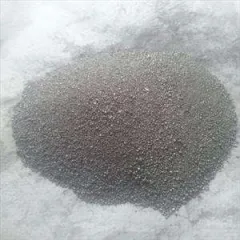Molybdenum Carbide: A Leader in High-Performance Catalytic Products and Future Power Applications
Molybdenum carbide (Mo â C), as an unique change metal carbide, displays superior physical and chemical properties, making it a superior catalyst in various reactions, especially in hydrogen manufacturing and co2 reduction, with broad application prospects. Mo â C is made up of molybdenum (Mo) and carbon (C), including a high melting factor (~ 2690 ° C), exceptional electric conductivity, thermal stability, and mechanical stamina. Most notably, its surface area is rich in energetic websites that can successfully adsorb and trigger particles, making it an ideal catalytic material. Premium Mo â C can be prepared using methods such as straight carburization, chemical vapor deposition (CVD), sol-gel process, and microwave-assisted synthesis. These sophisticated methods offer a strong foundation for discovering Mo â C’s capacity in numerous applications.
(Molybdenum Carbide Powder)
Over the last few years, study has actually shown that Mo â C excels in multiple locations, consisting of efficient hydrogen advancement response (HER) drivers, exceptional carbon monoxide â reduction stimulants, premium hydrodesulfurization (HDS) efficiency, and impressive lithium-ion battery anode materials. For instance, in acidic atmospheres, Mo â C can achieve fast and secure water splitting to create hydrogen with reduced overpotential and Tafel incline near academic values. In transforming CO â right into beneficial chemicals like formic acid or methanol, Mo â C demonstrates high selectivity and conversion efficiency. During petroleum refining, Mo â C can complete HDS reactions at reduced temperatures with greater selectivity and task. As a lithium-ion battery anode, it supplies greater capability and cycle life. These study searchings for have actually considerably propelled the commercial application of Mo â C from research laboratory setups.
Mo â C showcases considerable applications across numerous industries. In hydrogen manufacturing and storage, the Dalian Institute of Chemical Physics, Chinese Academy of Sciences, developed an effective electrolyzer based upon Mo â C nanosheet arrays, attaining steady water splitting at room temperature level, minimizing power intake, and enhancing hydrogen purity. For clean energy conversion, Stanford University created a photoelectrochemical tool composed of Mo â C nanowires that can directly transform CO â into fluid fuels under light problems, lowering greenhouse gas exhausts while providing clean fuel resources. In environmental protection, the Max Planck Institute for Solid State Research study found that Mo â C-modified triggered carbon fibers considerably enhance SO â capture efficiency and are easily restored for duplicated usage. In addition, in new energy storage devices, researchers at KAIST reported a sodium-ion battery making use of Mo â C as the anode material, defined by rapid charge-discharge prices, exceptional cycle stability, and energy density exceeding 400 Wh/kg, promising for future smart grids and electric cars.
()
In spite of substantial accomplishments in Mo â C products and related innovations, obstacles remain in functional promotion and application, such as price concerns, large-scale production innovation, ecological friendliness, and standardization. To get rid of these obstacles, continuous technology and boosted cooperation are vital. On one hand, growing basic study to check out new synthesis approaches and boost existing processes can continuously minimize production expenses. On the other hand, establishing and improving sector requirements advertises coordinated advancement among upstream and downstream companys, developing a healthy environment. Colleges and research institutes need to raise educational financial investments to grow more high-quality specialized talents. In recap, Mo â C, as a very promising high-performance catalytic material, is gradually transforming numerous aspects of our lives. With recurring technological maturity and excellence, Mo â C is anticipated to play an irreplaceable duty in more and more areas, bringing even more convenience and benefits to human culture in the coming years.
TRUNNANO is a supplier of Molybdenum Carbide with over 12 years of experience in nano-building energy conservation and nanotechnology development. It accepts payment via Credit Card, T/T, West Union and Paypal. Trunnano will ship the goods to customers overseas through FedEx, DHL, by air, or by sea. If you want to know more about Molybdenum Carbide, please feel free to contact us and send an inquiry(sales8@nanotrun.com).
All articles and pictures are from the Internet. If there are any copyright issues, please contact us in time to delete.
Inquiry us

